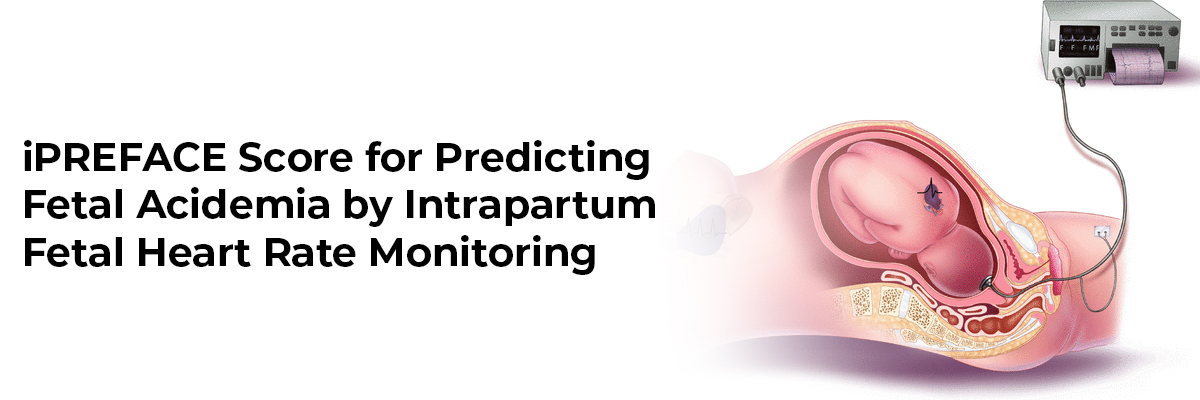
 IJCP Editorial Team
IJCP Editorial Team
iPREFACE score for predicting fetal acidemia by intrapartum fetal heart rate monitoring
Cardiotocography is widely used to assess fetal well-being during pregnancy and labor. Previous guidelines had focused on managing the most severe waveform, neglecting integrated recurrent decelerations.
The goal of the study was to establish a scoring system, the iPREFACE score (integrated score index to predict fetal acidemia by intrapartum fetal heart rate monitoring), for evaluating integrated recurrent decelerations and guiding medical interventions during labor.
This was a retrospective cohort study involving full-term single fetus births from vaginal deliveries, wherein iPREFACE scores were calculated based on cardiotocography findings 30 minutes before delivery.
The study included 469 delivery cases, revealing a significant negative correlation between iPREFACE scores and umbilical artery blood pH (correlation coefficient: -0.43). Cut-off iPREFACE scores for umbilical artery blood pH levels <7.20, <7.10, and <7.0 were determined as 44, 46, and 67, respectively, with corresponding areas under the curve of 0.776, 0.962, and 0.996.
The iPREFACE score demonstrated its potential to predict fetal acidemia, serving as an indicator for timely medical interventions during labor. Given the quick and easy nature of cardiotocography assessments, the iPREFACE score could prove valuable in clinical practice, potentially reducing unnecessary interventions during delivery.
The findings suggest that the iPREFACE score may become a reliable tool for predicting fetal acidemia, supporting guidelines for fetal heart rate monitoring in a practical and accessible manner.
Source: Ito A, Hayata E, Nakata M, Oji A, Furukawa T,
Nakakuma M, Morita M. Journal of Obstetrics and Gynaecology Research.
2021;47(4):1305-11.

IJCP Editorial Team
Comprising seasoned professionals and experts from the medical field, the IJCP editorial team is dedicated to delivering timely and accurate content and thriving to provide attention-grabbing information for the readers. What sets them apart are their diverse expertise, spanning academia, research, and clinical practice, and their dedication to upholding the highest standards of quality and integrity. With a wealth of experience and a commitment to excellence, the IJCP editorial team strives to provide valuable perspectives, the latest trends, and in-depth analyses across various medical domains, all in a way that keeps you interested and engaged.





















Please login to comment on this article